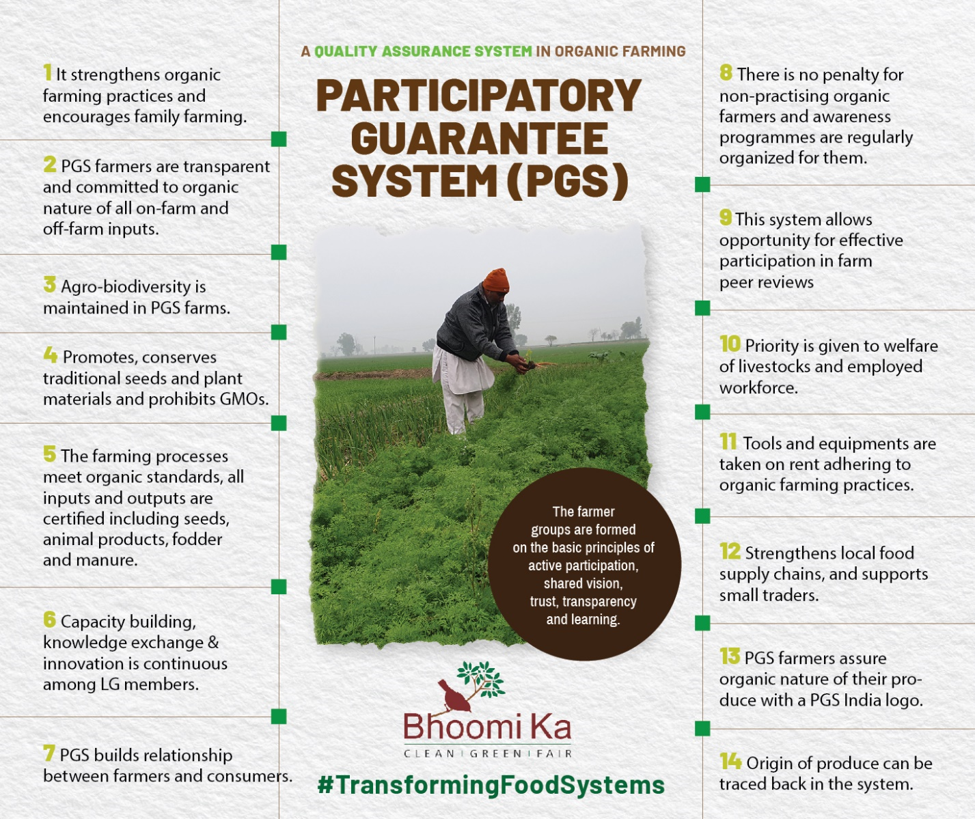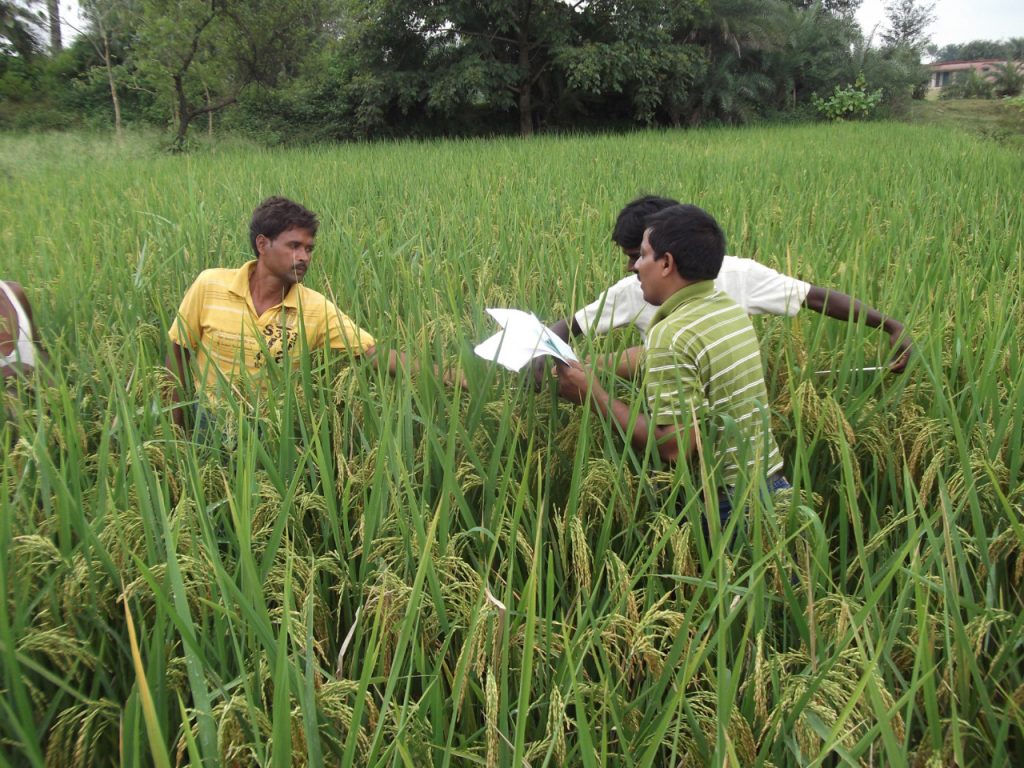Inception of PGS
We all are aware that India’s agricultural history dates back to 9000 BC, organically evolved in different agro ecological-climatic conditions and food consumption which always projected India as a traditionally agrarian community. Indian farmers are consciously engaged in sustainable farming on 170million Hectares across the nation. In the late 1950s and especially during the green revolution (1967-77), the use of nitrogen, phosphates and systemic insecticides were brought in to increase yields. Continuous application of such inputs for more than 2-3 decades and induction of high commercial mono crops reduced traditional crop diversity resulting in loss of soil’s organic carbon relative to soil’s organic matter. With poor literacy amongst communities and inadequate information about adverse residue effects, it become a challenge for farmers as well as consumers.
In early 90s when a progressive farmer wanted to export his/her farm harvest, organic certification became essential for western consumers. Eventually certification agencies brought norms in farming practices with an expensive fee structure. Obviously it was not viable for small and tribal farmers. This paved a path to find an alternate certification mechanism and that lead to the formation of Participatory Guarantee System (PGS).
Basic framework of Participatory Guarantee System (PGS)
Under PGS, a group of farmers voluntarily assemble to declare and assure their practice is organic and fair in nature – socially, culturally and ecologically. The farming practice and production process is certified as organic based on active participation and are built on the foundation of trust, social networks and knowledge exchange. PGS system enables organic farmers to sell her/his produce as organic and allows the use of organic logo on product packages. It is a credible and effective system of locally focused quality assurance. The products are certified for local markets and will have to meet country specific food regulation standards for exporting.
PGS is committed with values and ethics
PGS is an internationally accepted system. The International Federation of Organic Agriculture (IFOAM) actively promotes PGS initiatives around the world after an international consultation held in Brazil in 2004, with values and ethics as a guiding definition of sustaining the health of soil, ecosystems (plant, animal, human & planet as one & indivisible), people (based on living ecological systems & cycles), social environment and life opportunities, all precautionary & responsible, for future generations.
By adopting eco-friendly low cost technologies, chemical and pesticide residue free produces should be available for consumers. The farmer groups are formed on the basic principles of active participation, shared vision, trust, transparency and learning.

PGS evolutionary process in India
With a national level series of consultation and guided supports from IFOAM, five civil society voluntary organisations have formed PGS Organic Council (PGSOC) in India in 2006. The PGSOC has initiated PGS across our nation. The founding members have also completed the value chain process and rolled out packaged PGS certified products to consumers since then.
Formation of “Local Group-LG” of five or more organic farmers, ‘’Peer reviews” and “farmer’s pledge’’ to follow organic standards are unique features of this system. The peer review team can engage traders, civic leaders and local consumers to build social relationships and social control on farming practices. The PGSOC secretariat meets periodically to review the function of groups, updated data, issue certificates and engages in liaisoning with state.
PGS India – a decentralized organic farming certification system
In a major development, the Govt of India has launched the PGS India through the Department of Agriculture and Cooperation (DAC), the Govt of India had issued a notification dated the 7th of April, 2011 which explains the background and process of PGS India certification. It shall function under a National Advisory Committee. The National Centre of Organic Farming, with its Secretariat at Ghaziabad, will set organic standards, guidelines and involve in capacity building programmes.
The FSSAI recognises and allows PGS India organic certified products in the market. PGS-India web portal was launched in 2015. PGS-India has since then evolved with the introduction of online registration, approval, documentation, and certification and transaction certificate for sales.
PGS-India certified products can be labeled with PGS-India logo along with unique ID code provided on the certificate. Use of PGS India Organic logo for a product that has met PGS India certification norms at all levels, and PGS India Green for conversion stage are permitted under this system. Under various government, agricultural schemes like Paramparagat Krishi Vikas Yojana (PKVY), DAY – Mahalir Kisan organic cluster are implementing PGS India across the country. Currently, around 5 lakh farmers are registered in the PGS-India portal with 327 active Regional Council for providing approvals. Welthungerhilfe’s Bhoomi Ka initiative in collaboration with its partners have supported 5000 farmers in attaining PGS certification across six states.






